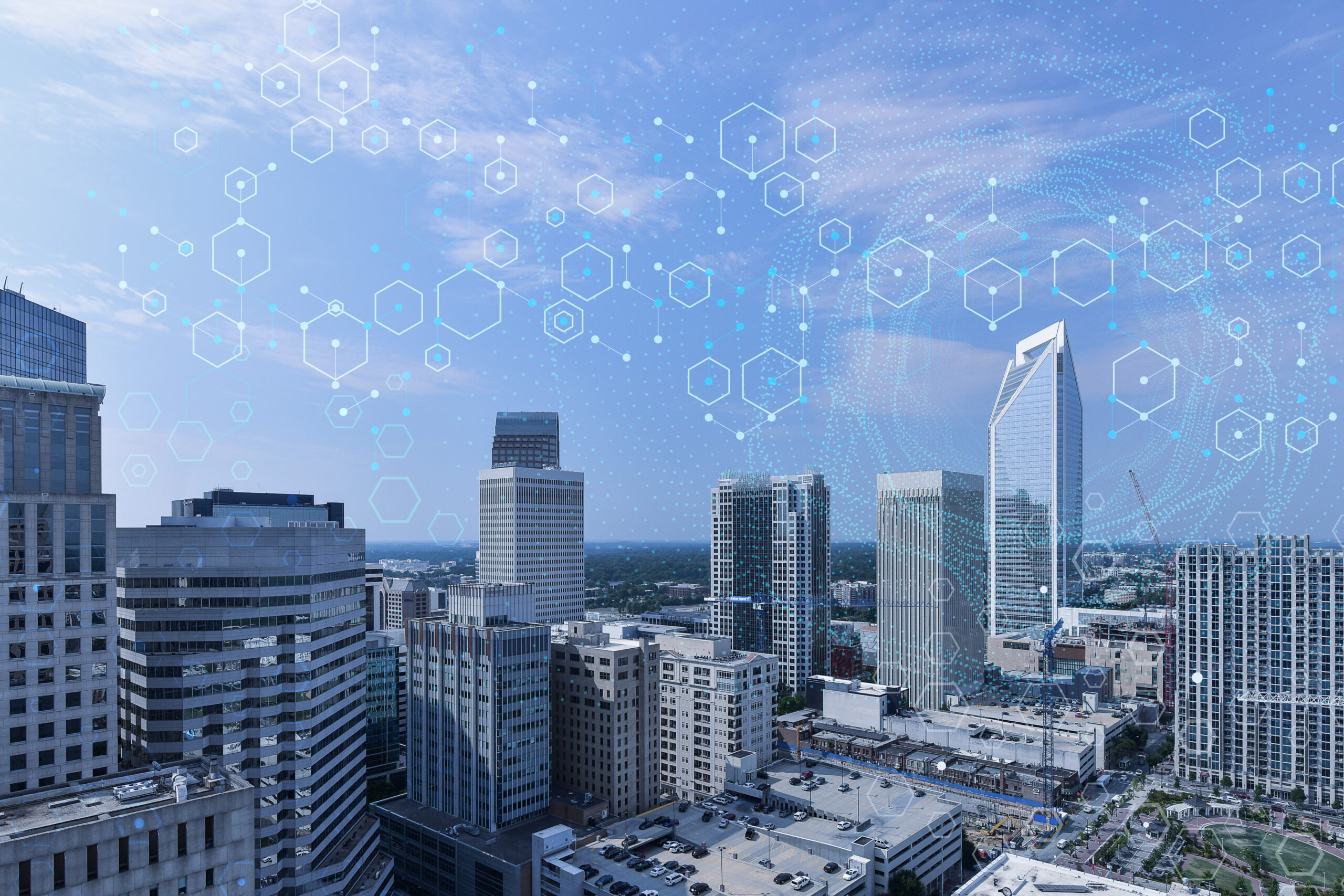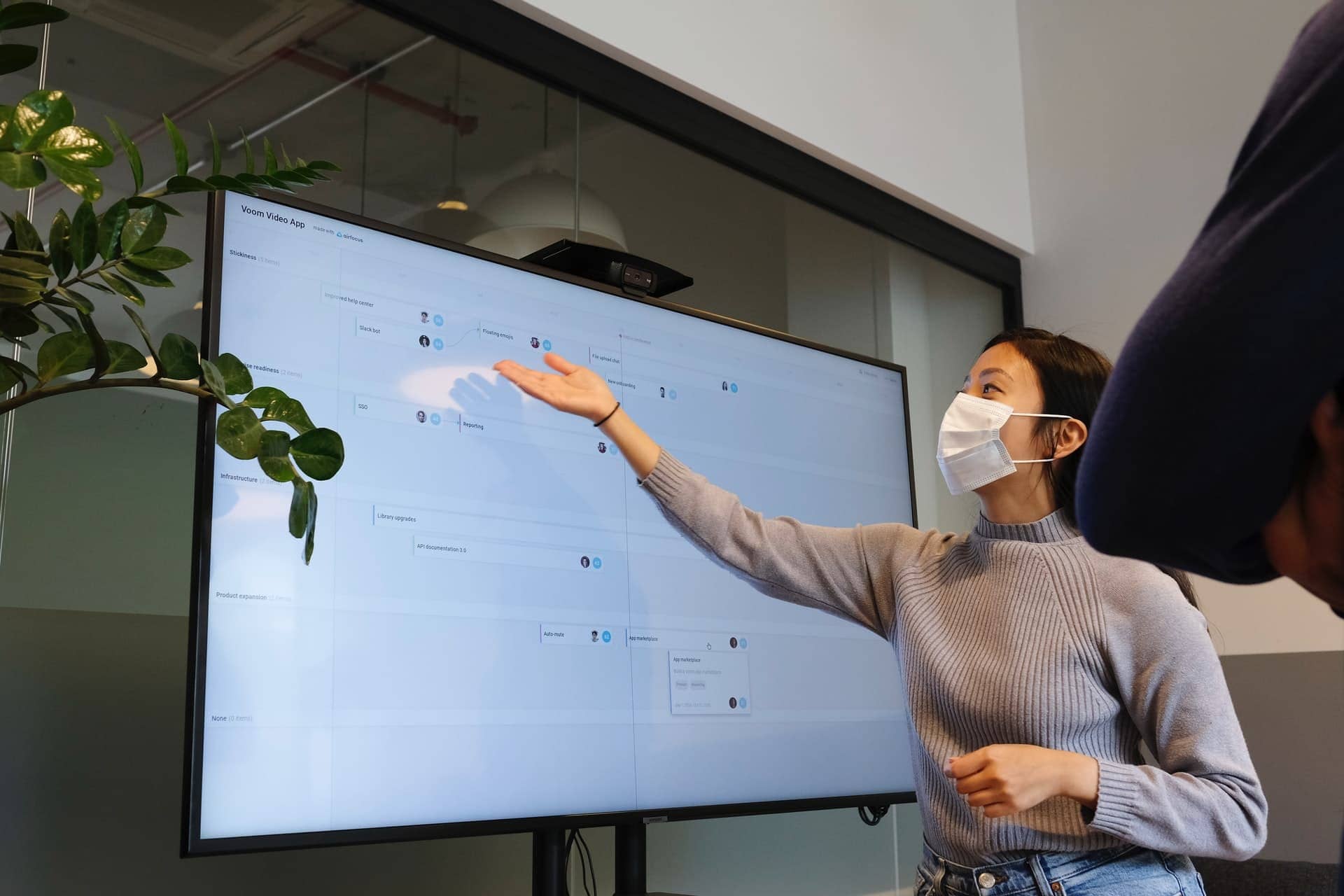Artificial intelligence (AI). Machine learning. Big data. Smart technology is a monstrous market with an insatiable appetite.
According to the Motley fool, generative AI software like ChatGPT could add $200 trillion to global economic output by 2030. For perspective, the 2023 global GDP is expected to come in at $106 trillion. And based on 63 use cases in a recent study by McKinsey, generative AI could add the equivalent of $2.6 trillion to $4.4 trillion annually.
Fueled by what is known as “Accelerating Change,” where every new tech improves on older generations to become better and faster, AI and other smart technology is exponentially impacting the way we live and work. It simply makes our lives easier.
In this three-part series, we’ll look at what encompasses AI, how it is relevant in commercial real estate (CRE), and what Accelerating Change has in store for new advances.
AI is an umbrella term for smart technologies that work together to mimic human intelligence (i.e., being able to understand and respond to spoken and written language), perform certain human-like tasks (e.g., data analyses), and even exceed human cognitive abilities (e.g., make highly sophisticated decisions or recommendations). At its core is machine learning whose superpower is self-learning technology that improves its own performance.
AI analyzes enormous amounts of data simultaneously at lightning-fast speed. This data is combined with progressive algorithms to create patterns. Through the power of machine learning, AI then interprets and continuously learns from these patterns to come up with more intuitive solutions and actions.
Think about it in terms of a human child. In their early youth, children understand only the basics of the world around them. But as they grow and are exposed to new information, situations, and interactions, they learn to become more informed and intuitive. Examples of AI in modern life are self-driving vehicles, face-recognition phone access, and smart home devices.
CRE is a goldmine of data and is perfectly suited for AI. This applies to developers, investors, property managers, brokers, lenders, etc. Here is a look at a few of them.
Risk Assessment
AI can be helpful in risk management. Self-learning algorithms can analyze financials, current/proforma market trends, property fundamentals and other key factors to anticipate unforeseen circumstances such as market downturns and operational issues — even compliance and regulatory concerns. This gives CRE stakeholders an advantage to develop better risk assessment plans.
Lead Generation and Leasing
AI can take leasing from inquiry to closing in less time. CRE can benefit from AI systems that match properties with tenants, as well as use AI leasing assistants (e.g., chat and phone bots) to facilitate productive and highly-intuitive conversations with prospective tenants. This instant communication is critical when you consider that successful engagement is 40% higher when property management responds to an inquiry within the first 1 to 2 minutes. This is business most CRE operators today cannot afford to lose.
Most of these inquiries are general or common questions, but through machine learning, AI is constantly learning new questions and formulating better responses. Eventually, the AI leasing assistant can become so intuitive that a prospective tenant may not even realize they’re communicating with an AI machine, unsuspectingly handing over the lead to its human teammate.
Tenants can also virtually tour a property through AI-generated and fully built-out floor plans to give prospects an in-person and real-life perspective of the suite, building, and even the surrounding area.
Development and Design
AI technology can be particularly useful in the development space to assess new opportunities, measure redevelopment potential, or to manage cost estimates.
It takes two to three months to research, configure and design an office space — years for a ground up development. Then comes the review and approval, permitting, regulatory compliance, material sourcing, financing and a slew of other time-consuming processes and procedures. AI-design tools take out the guesswork and can easily generate 3D models in a matter of minutes — all of which are more accurate, code-compliant, permit-ready, and can be easily modified to different specifications.
Operations
The pressure is on for environmental, social, and governance (ESG) practices, and AI is revolutionizing how strategies are executed and managed. AI evaluates real-time patterns in utility use, waste and recycling, and other environmental factors to suggest corrective actions that lower emissions and help meet sustainability goals. Similarly, AI algorithms can assess a building’s social and community impact for a deeper understanding of the local community with consideration to potential investment and partnership decisions. On the reporting front, AI-driven ESG enhances the accuracy and reliability of data collection and representation.
Security
Adequate building security and access is a major selling point for many companies. AI technology significantly enhances biometric identification to now include in-depth facial recognition, heartbeat patterns, or even behavior or mannerisms — to ensure building access is granted to only approved individuals. KBS is considering adding robot security guards to some of its properties. These robots are about 5 foot 3, and weigh about 400 pounds. This robot can alert the building’s security team if something happens like a car break-in, a stolen bike or vandalism. There’s also a button on it that people can press in an event of an emergency.
Employee Relations, Efficiency and Productivity
AppFolio identified improving employee experience as the most valuable benefit of AI, which can automate tedious and time-consuming manual work that doesn’t necessarily need a human touch. An AppFolio study showed that 80% of respondents felt creating accounting reports should be automated, and 75% said auditing, financial diagnostics, utility billing, and entering bills. AI can help alleviate this burden on employees and help an organization optimize workflow.
Conclusion
Accelerating Change is driving enthusiasm and positive transformation in CRE; AI is at the forefront of this change. The applications covered here are only a small representation of what is possible. AI is here and it’s only going to get bigger and more sophisticated.
Instead of resisting this technology, the CRE sector needs to embrace it. There is so much opportunity in AI, and what CRE puts into it is what it will get out.
Don’t miss parts two and three of this report in the coming weeks. Learn more by visiting KBS.com/Insights.




